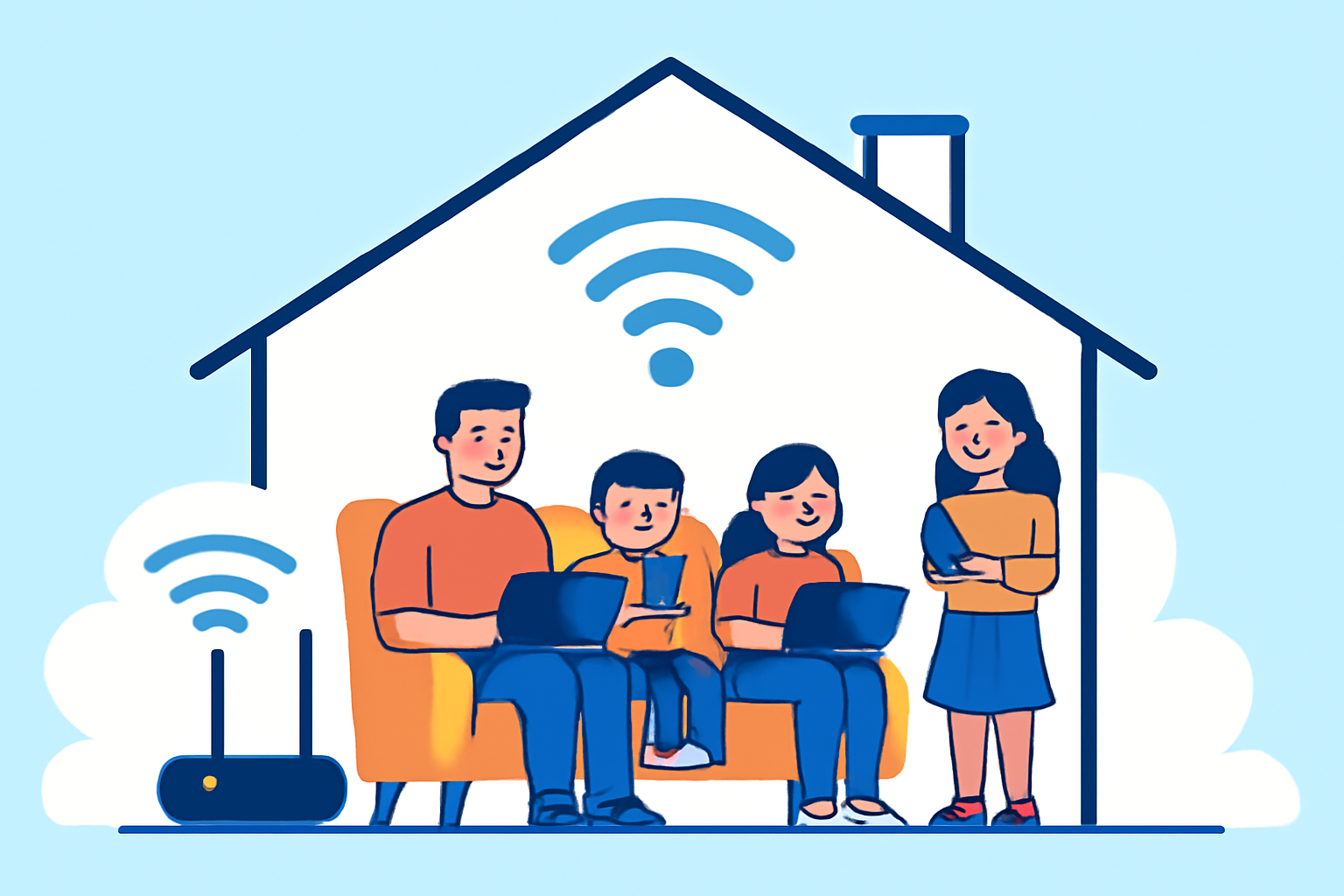If you have Wi-Fi at home, you know how frustrating it is when the speed is slow. Maybe you want to watch a video, but it keeps buffering, or your online work is lagging. Everyone wants good internet these days for work, study or just to relax. But don’t worry, you can do many things yourself to make your Wi-Fi faster without spending extra money or calling a technician. Let me share some easy and useful tips that really help.
Put Your Router in a Better Place
Have you checked where your Wi-Fi router is kept? Many people put it in a corner or on the floor or near a wall. This is not the right way because walls and floors block the Wi-Fi signals. Instead, try to keep your router in the center of your home and place it somewhere higher, like on a table or shelf. This helps the Wi-Fi signals move freely to all rooms.
Also, keep it away from metal things, microwave ovens, or cordless phones. Those things can disturb the signals and slow down your internet connection.
Use a Strong Wi-Fi Password
Slow internet can sometimes happen if too many devices are connected to your Wi-Fi, including those you don’t know about. Sometimes neighbors connect without asking. To stop this, use a strong password that others can’t guess easily. Change it once in a while to be safer.
You can also check which devices are connected by logging into your router’s settings. If you see devices you don’t recognize, remove them. This way, your internet speed improves a lot.
Restart Your Router Every Now and Then
Just like we need sleep, your router also needs a rest. If you keep it on for many days, it might get slow. Switch it off for a couple of minutes every week, then switch it on again. You will see how this small step makes your connection better.
Choose the Right Wi-Fi Frequency Band
Almost all routers give you two options: 2.4 GHz and 5 GHz. The 2.4 GHz band covers a larger area but is slower. The 5 GHz band is faster but only good when you are near the router. For example, if you’re sitting close to the router, use 5 GHz for faster speed. When you are far away, use 2.4 GHz to get a more stable connection.
Change the Wi-Fi Channel
Sometimes your Wi-Fi slows down because many neighbors use the same channel. This can cause interference where signals clash and make your internet slow. Log in to your router settings and try changing to a less crowded channel. If you want, some free apps can help you find which channels are clear.
Use Wi-Fi Extenders If Your Home Is Big
If your house is large, one router might not cover the whole area. You might get strong signals in the living room but weak or no signal in your bedroom. A Wi-Fi extender or repeater helps by taking your router’s signal and sending it farther. For very large homes, mesh Wi-Fi systems are best. They use several devices to give strong internet all over your house.
Keep Your Devices Safe From Viruses
Sometimes the problem is not the Wi-Fi but your devices. Viruses or malware may be using your internet without telling you. Use a good antivirus and scan your device regularly. Don’t open any suspicious links or download untrusted apps to keep your devices safe.
Keep Your Router Updated and Upgrade Your Plan If Needed
Just like your phone, your router needs software updates. These updates fix bugs and improve speed and security. Check your router’s settings regularly and update it when possible.
If your internet plan is old or your router is very old, upgrading can give you much better speed. Talk to your internet provider to see if there are better plans. Also, new routers with Wi-Fi 5 or 6 can give faster and stronger signals.
Use an Ethernet Cable for Important Devices
If you are working online or playing games where speed matters, using an Ethernet cable is a good idea. This cable connects your device directly to the router and gives faster and steady internet, better than Wi-Fi.
Avoid Obstacles Blocking the Wi-Fi Signal
Wi-Fi signals don’t like obstacles such as thick walls, metal, or big furniture. Don’t keep your router inside cupboards or behind big TVs. Give it open space so signals can travel freely to all devices at home.
Final Words
To sum up, good Wi-Fi speed makes life easier and more fun. You don’t need to be a tech expert or spend a lot of money. Just small changes like putting the router in the right place, using a strong password, restarting regularly, and choosing the right frequency band help a lot.
If your home is large, use extenders or upgrade your router. Protect your devices from viruses and keep your equipment updated. Try these tips at home, and you will enjoy faster and smoother internet every day. No more waiting for videos or slow pages.
